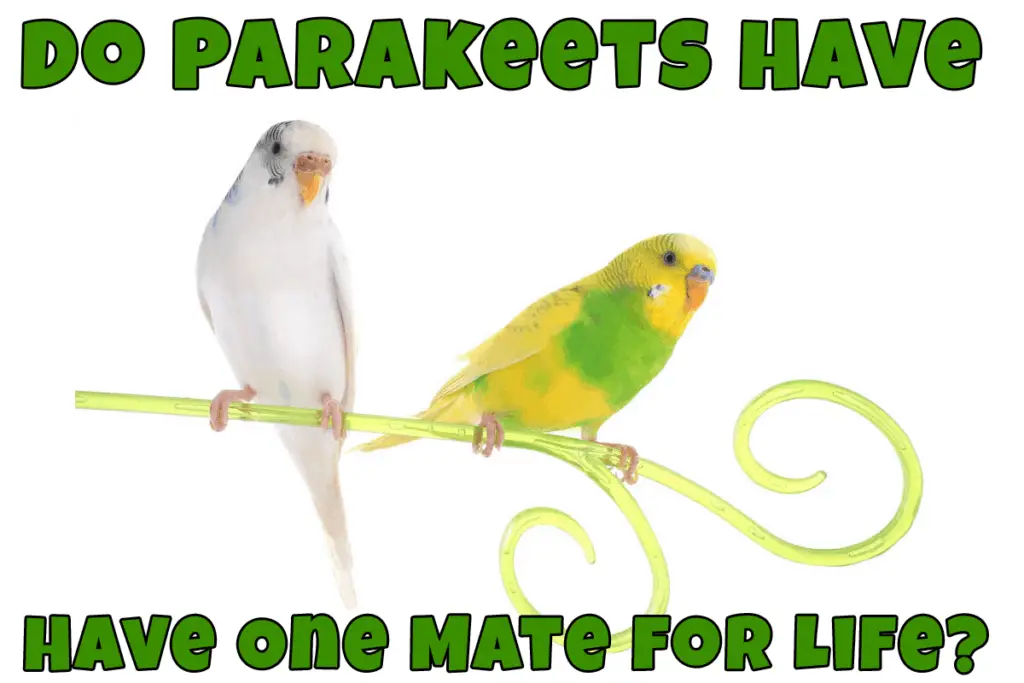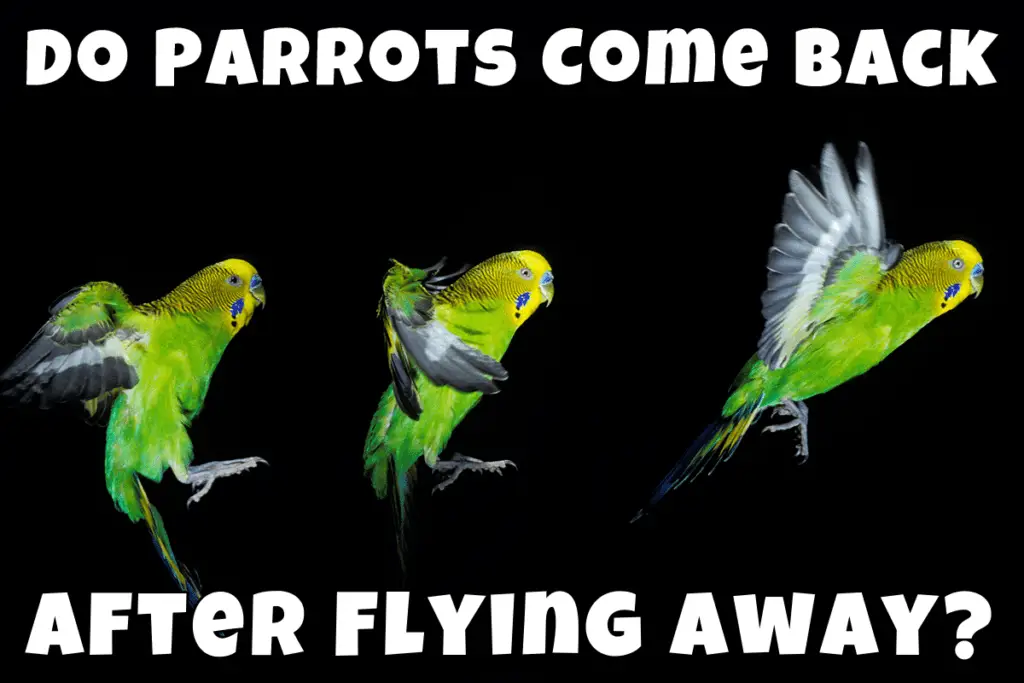As the majority of the animals, parrots are quite straightforward. They tend to let you know what their wishes are. Thus, if you live with a parrot, you learn its behavior and the signs of its needs. You learn to understand when it is hungry, when it is moody, playful, and just don’t like you in general.
But there is one crucial question left! What exactly are the signs that a parrot likes you? In this article, I’ve gathered some of the most common signs of a parrot’s love in my own experience and the signs mentioned by bird experts.
It Is Relaxed
It’s easy to notice whether a bird is relaxed or not around you. You’ll notice that its posture is tense if it is comfortable around you. A parrot is all closed and ruffled up. If the bird is relaxed, mindsets its own business, and doesn’t watch you like a hawk at all times, it feels comfortable around you.
A Parrot Cuddles With You
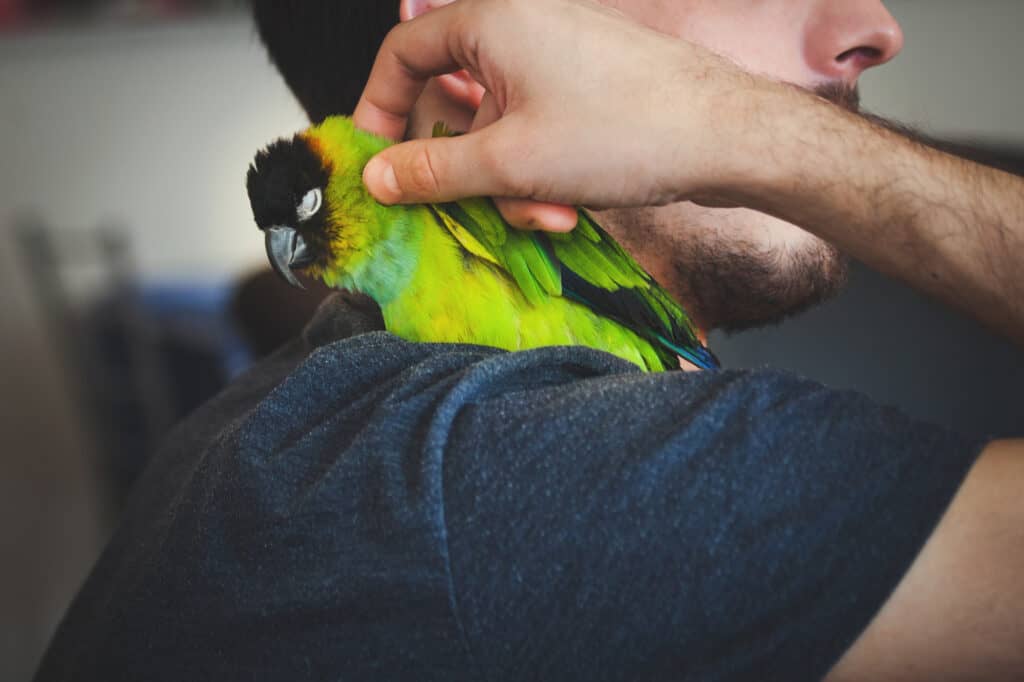
Do parrots actually cuddle? Yes, they like to cuddle very much! Thus, if it’s in a parrot’s nature, it will cuddle with you as well. After all, you are a part of its flock. Well, according to its way of thinking at least.
Parrots are affectionate and sociable birds. If they’ve already bonded with you, consider you a part of their family. Thus, they will cuddle! There are actually several ways in which parrots “cuddle.”
- it nuzzles into your hand, shoulder, neck, or anything available
- it eagerly climbs around your body
- it rubs against you
These are the telltale signs that your bird likes you and wants to be closer to you.
Are Male Or Female Parrots Better? How to Choose the Right One
It Preens For You
If you are a new parrot owner, preening means cleaning. If a parrot makes an effort for just you, it means that the bird likes you and wants to be presentable. Besides, if they take their precious time around you to preen, it means they trust you fully. No animal would groom if they felt even slightly in danger. Thus, it also means that the parrot is comfortable around you. Also, note that parrots preen naturally to keep their features clean, trimmed, and shiny. Some don’t be too excited if this is the only sign. Anyway, it means that a parrot is comfortable around you.
It Grooms You
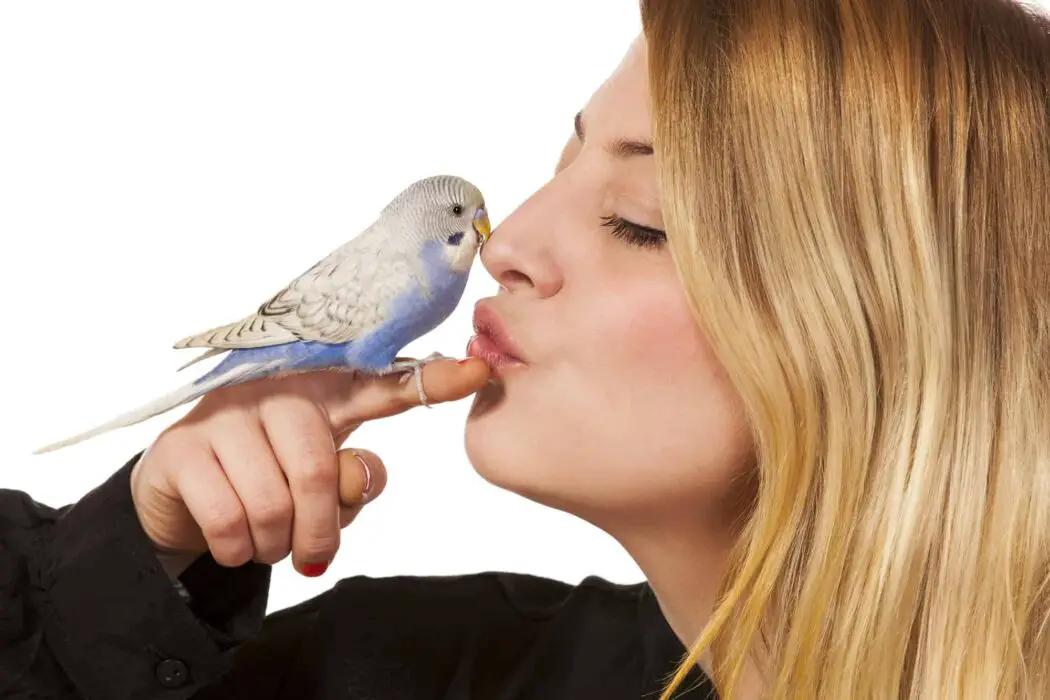
Parrots, just like many other animals, tend to groom their mates and family members. In captivity, there is no choice, but you groom a person they’ve bonded with!
But what does parrot grooming look like? We all know that cats lick everything and anything, but birds clearly have other grooming ways. For them, the process is the following:
- biting your fingers and ears
- chewing your hair
- tugging your clothes
Mind though that grooming is gentle biting. If a bird bites you fiercely, it means the complete opposite. The parrot is far from liking you.
It Flaps Wings
This may be a sign of greeting you or being happy that you are around. Parrots flap its wings similar to the way it flies, but it stays in one place. These actions are usually directed at you. If the bird faces away from you, it may be just getting some exercise.
Always come to your bird if it’s flipping the wings; it is getting your attention. In time, you’ll learn the language of your bird and will interpret its signs correctly.
It Flaps Tail
Similar to the wings, the energetically moving tail tells that a bird is glad to see you. In this regard, it is very similar to a dog. Remember how dogs flap their tails when excited? The same with parrots.
In time, you’ll notice that parrots also shake their tails before doing number 1 or 2. But you’ll learn the slight difference between these two shakes.
It Stretches Toward You
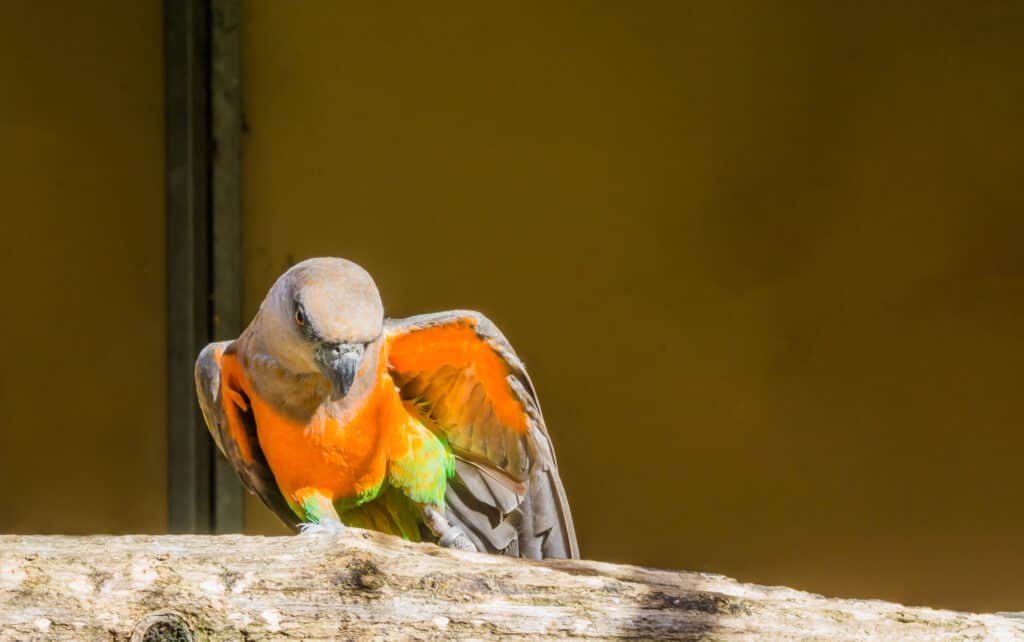
Many parrots make this gesture when their owners are around. They stretch their wings and legs towards the owner. Pay close attention to your bird. If it does the same or extends in your direction in any other kind of way, they attract your attention and show how happy they are.
You may notice them stretching both wings on occasion, but generally, it’s just one wing.
It Fluffs Feathers
Yet again, bonded birds do that in the presence of each other as a sign of affection and trying to impress each other. So when a parrot fluffs its feathers near you, it’s doing this for you. The bird shows how happy and content it is.
IA with most gestures, you have to be careful with this one. It may look very similar, but parrots ruffle their feathers in irritation and fear as well. After all, the combination of several love signs will tell you clearly that a parrot likes you.
It Bows to You
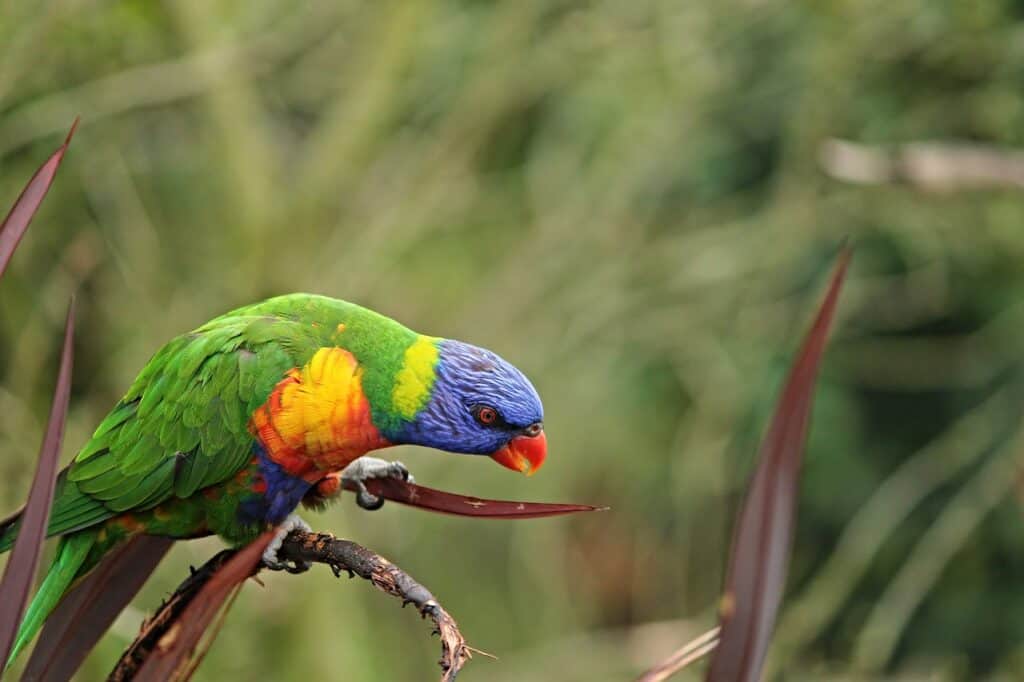
This is not a sign of respect as it is in many countries. This is more of a “pet me” request. Your parrot will bow its head and point it towards you. It means that it wants some scratching, petting, and just a bit of playtime with you. Plus, it allows you to get closer! Thus, your birdie trusts you and seeks time together.
Do Parrots Blink Like Humans? Blinking Game Rules Inside
It Hangs Upside Down
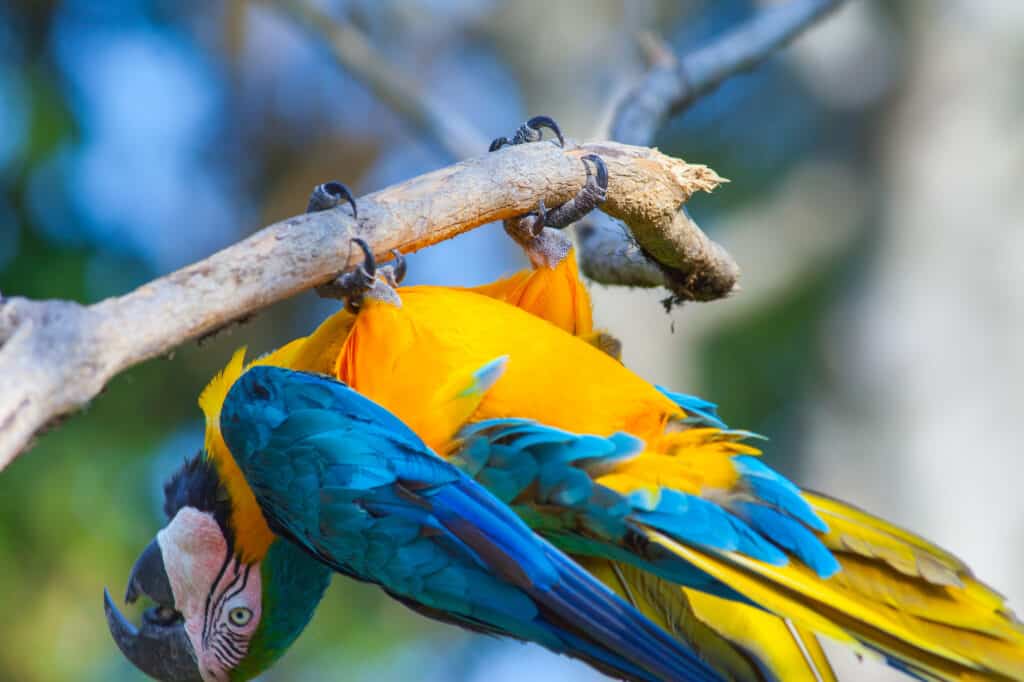
You surely know that bats are sleeping upside down! Plus, some birds do that too! However, unless you own a parrot, you may not know that it can also hang upside down in certain situations. Playing is one of those situations!
Among all the physical signs a parrot likes you, this is arguably the most telling. In the wild, birds are highly vulnerable in such a position. Thus, it runs in their genes to avoid this position in surroundings in which they feel uncomfortable.
Thus, if a parrot hangs upside down when playing with you, it is delighted.
Its Pupils Are Dilated
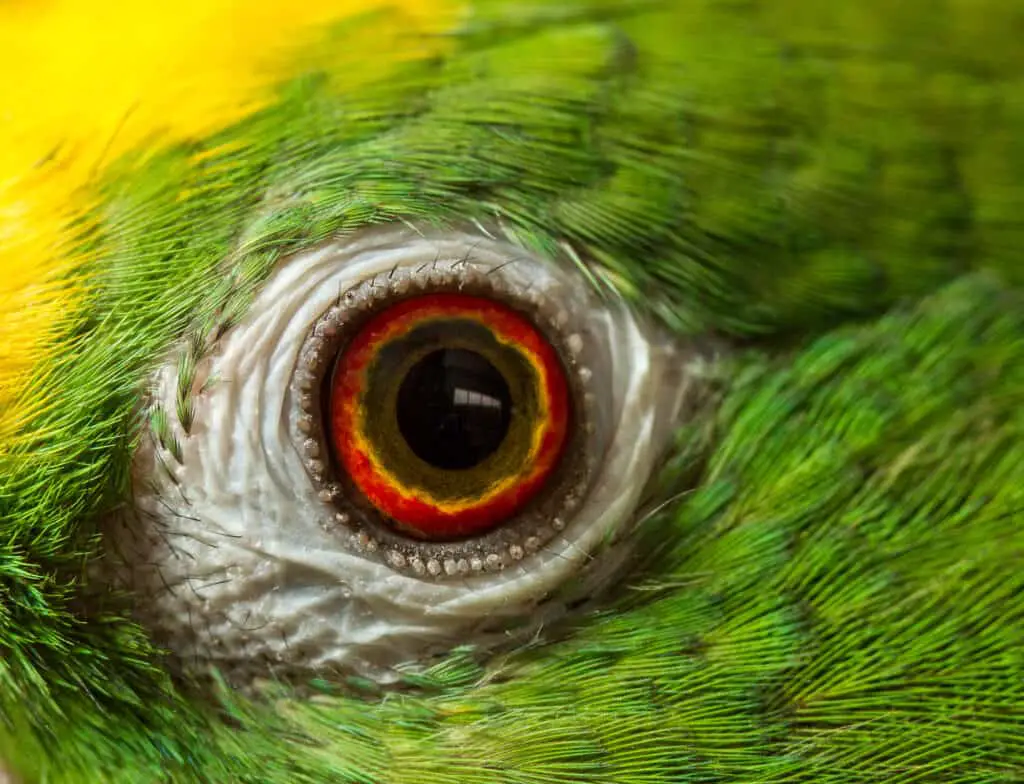
You’ll be surprised to know that parrots have greater control over their pupils than people do. With us, they react to the lights and darkness. However, parrots can widen and narrow their pupils based on their mood and the overall situation.
If you notice that your parrot’s pupils dilate when you start communicating with it, know that the bird feels happy. Your parrot likes you!
However, be sure to pay close attention to its body language. Parrot’s pupils also dilate when they are anxious or frightened!
Also, if your parrot eagerly keeps eye contact with you, take this as a sign of comfort and relaxation around you as well. You’ll see that your parrot likes to stare quite a lot. Many of them do. They’ll stare with their “all-seeing” eye right into your soul!
Do Parrots Poop All Over The House?
Beak Grinding
If a bird grinds its beak, it is a sign of deep content. Similar to the purring of a cat. I have a rabbit at home as well, and it also grinds its teeth when I rub its head. So many animals have a similar habit of showing content and happiness.
Parrots make clicking noises with their beak to show how relaxed they are! Of course, new owners are often surprised and become worried when it happens, but rest assured your parrot is comfortable.
Another form of love expression is tongue-clicking. It sounds similar to grinding and virtually means the bird is ready to play or for some rubbing.
It Mouths You
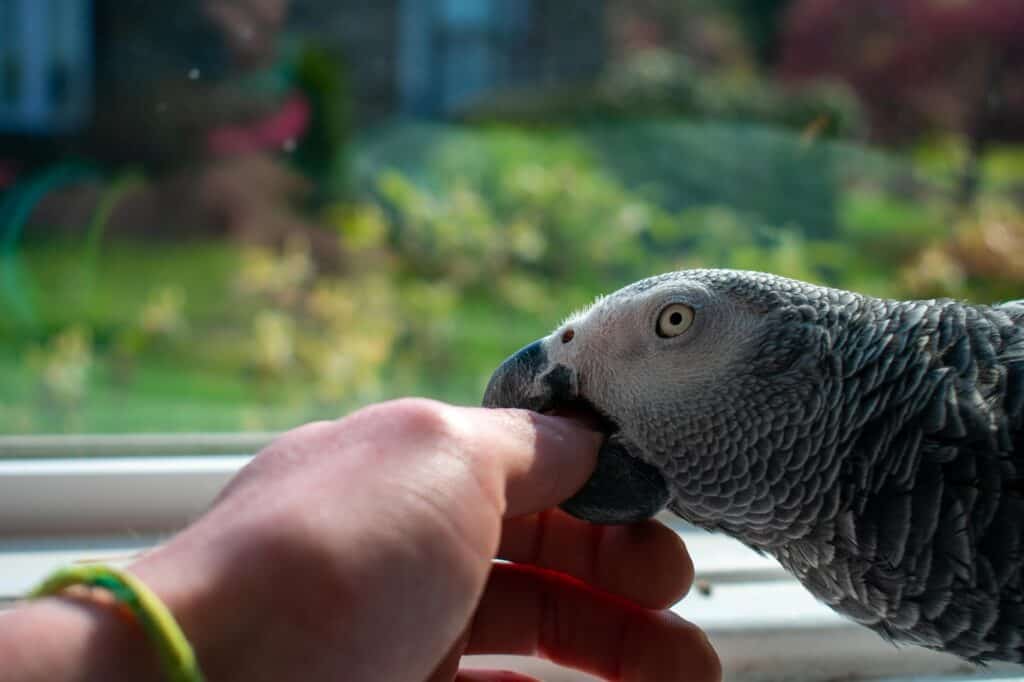
What is that? You may wonder about the habit if you are new to all this parrot love. At first, many are worried that the bird is uncomfortable or aggressive as mouthing is very similar to biting. However, this is a sure sign that a parrot loves you!
Note that biting is a sign of aggression, but mouthing is far from biting as scratching is from cutting. It’s a gentle nip that is playful in nature instead of a hard, painful bite!
It Regurgitates Food
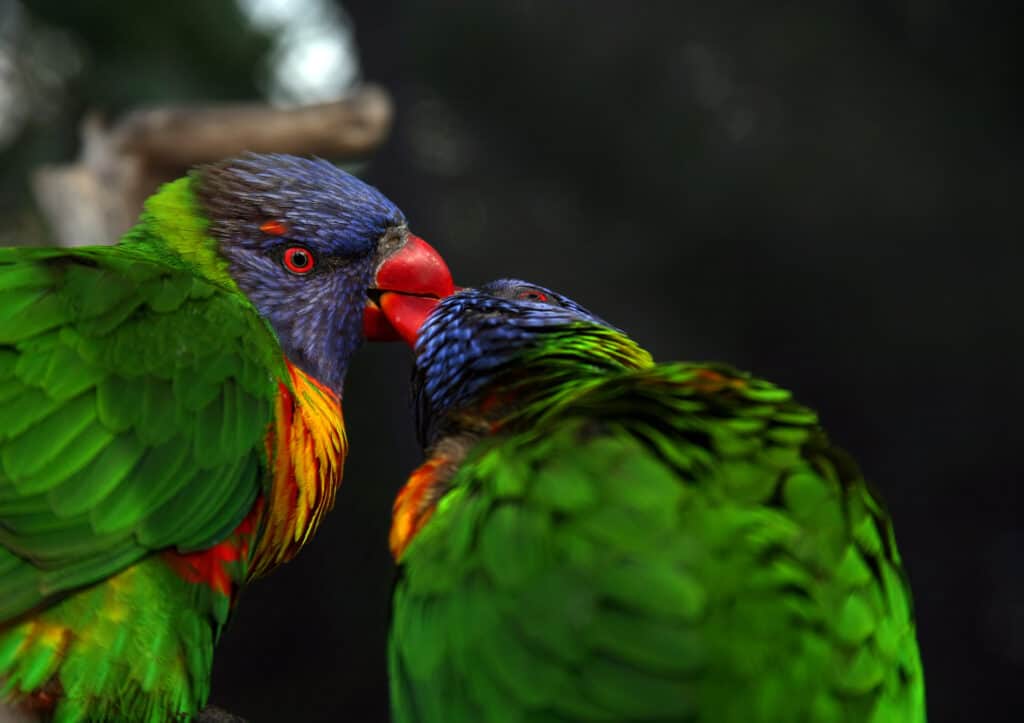
Let’s not discuss how disgusting regurgitating is for us humans. We’d never do that to people we like! Gross.
But parrots take it quite the opposite. If your parrot regurgitates food for you, this is the greatest sign of affection! For them, it’s not gross. It’s the ultimate show of love. You probably already know that birds regurgitate their food with their chicks. However, they also do that for their mated partners. In captivity, its closest bonded person will be honored with the process. Thus, just try to enjoy the fact that your pet shares the most precious thing of its with you, food! Pet it on its head as a thank you.
Are Cockatiels Messy? Cleaning Tips
It Eagerly Plays With You
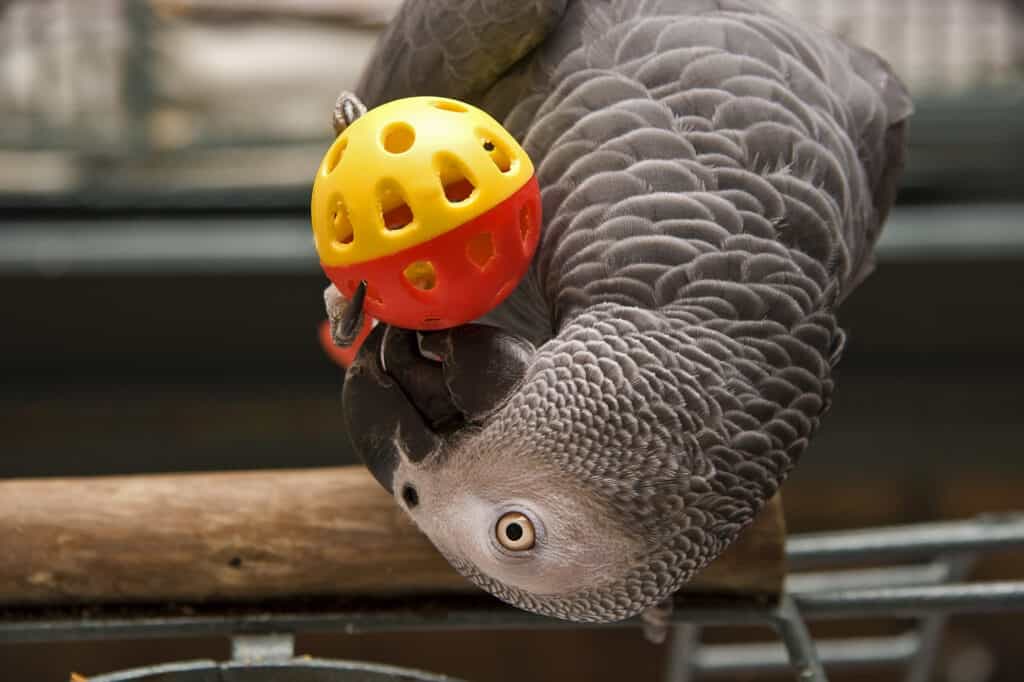
If your parrot plays with you, it likes you. This is a simple truth that every owner has to remember. The bird may be moody or snappy if it doesn’t like your behavior. However, while still playing with you, rest assured that your parrot actually loves you, and the moody behavior is temporary.
Playtime requires your parrot to be super relaxed, comfortable around you, and generally happy to see you.
You’ll notice that when strangers visit your place, it will stay all ruffled up on the porch. But, as soon as they leave, the parrot feels safe and will return your affection.
It’s Blushing
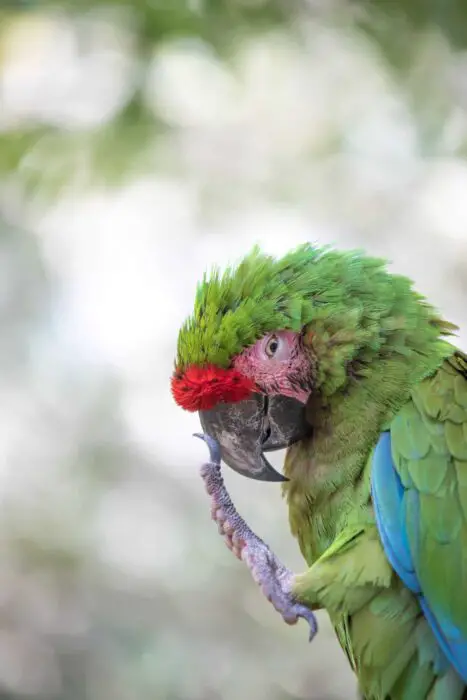
Did you know that parrots could blush? Well, that is a rare ability, actually. But many macaw birds, as well as several other types, have featherless skin patches around their beaks. Thus, if it does blush, you can see how it turns more and more pinkish. Military Macaws are known to blush in the most drastic way among all parrots.
There is just one catch. Blushing doesn’t always mean affection. Parrots blush when they are excited and frightened as well. In the end, it all comes to how well you know your bird and what other body language signals you get from it. Is it calm or agitated?
5 Reasons Why Your Parrots Bob Their Heads
It Purrs
Yes, this is not a cat, but you will hear it kind of purring as well. This is a rare sign and one that is the most impactful. It means your parrot loves you. A purring parrot is ultimately happy.
Though, new owners may confuse this sound of a low growl. So, I suggest you listen very closely to the difference between the two. Besides, a parrot only growls when it’s highly irritated or frightened. Thus, you’ll recognize the sign from context.
It’s Calling You
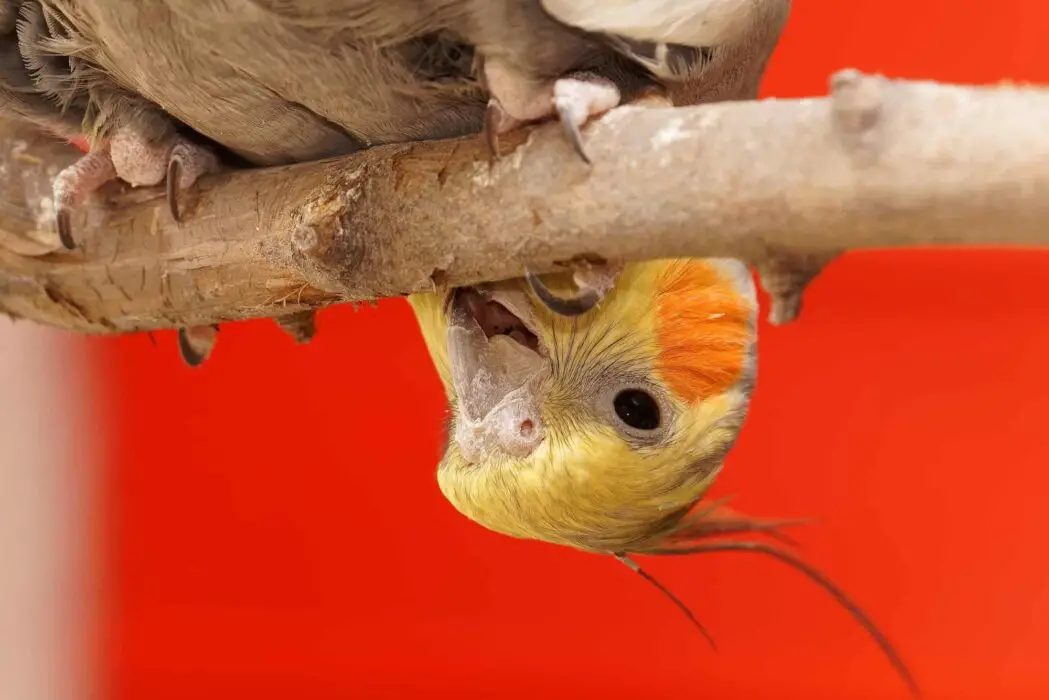
When you are missing, you’ll hear chirping or some catchphrases you’ve taught the bird. This means that the parrot is missing you and calls you to return. This is the way birds reach each other. This is how they stay in contact even at long distances.
Also, an interesting fact, did you know that mated parakeets can remember each other’s voices for 70 days after separation? You should read more about parrot mating in the article I’ve written on the topic.
Thus it is calling you to keep connected. Also, it is checking whether you are safe. You may just answer its call from afar, and it’ll settle down.
It Communicates With You

Outside of the random phrases you’ve taught your bird, notice when it is chirping when you close to the cage. The bird may start whistling or talking when you are near to catch your attention and play with you. If it’s vocal, it’s happy. Most of the time, at least. Take a look at its body language while it’s vocal. Also, if it’s just screaming loudly, it is not happy.
The bird will talk to you with human phrases only when it’s in a good mood and will also sing and whistle.
If you walk into a room and your parrot starts whistling and jumping around, it is happy to see you.
How Good Is Parrot Hearing? Learn Why Parrots Are So Good at Mimicking
It Chatters
This is similar to the previous point, but it’s not clear phrases or tunes. It is more of quiet chatter, murmur, or something like a purr. If it does when you are close, take it as a good sign. In the wild, birds do that to their flock members or mates to connect with them and before settling for the night.
No matter how loud or whispering the chatter is, the bird is trying to connect with you. So answer your parrot in kind by talking to it and rubbing its head.
It Mimics
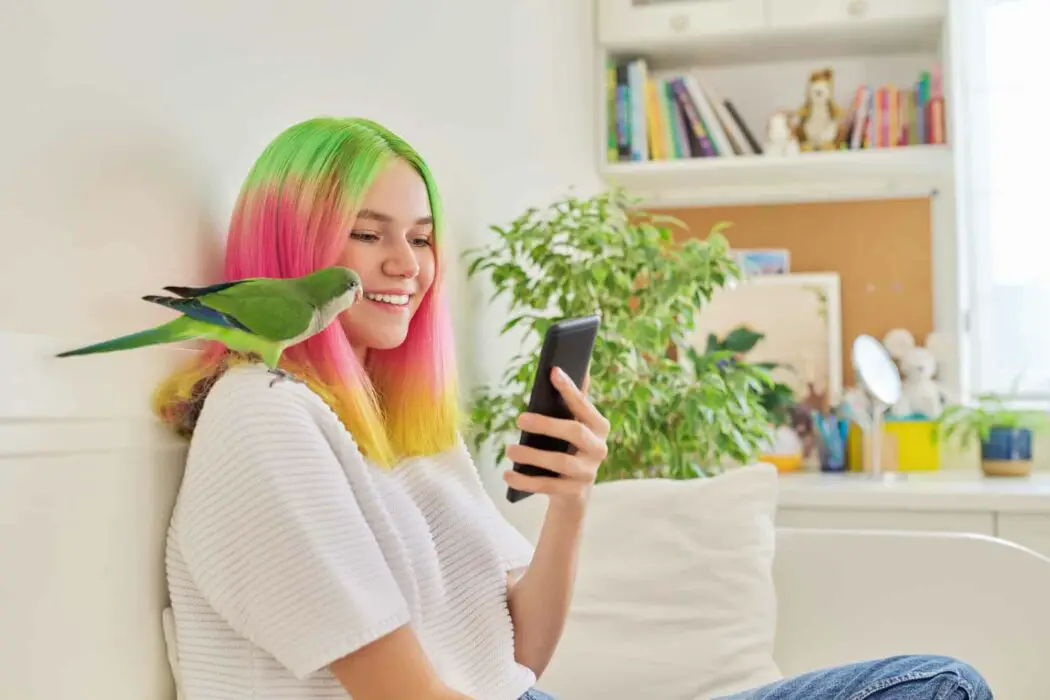
A parrot can mimic your behavior when it’s bonding with you. You’ll also notice that humans do that too. When we are close to someone we like, we tend to mimic their gestures, habits, phrases, and so on.
Parrots are trying to fit into life and mimic your pitch and actions to become closer. Among all the parrot signs of affection, this one is the cutest and most hilarious to observe!
Which Parrot Has The Worst Bite?
It Bites
Okay, how can this be a sign of affection? What can be cute and loving about biting? One thing – the bird bites others! Not you.
Parrots are monogamous. Thus, they bond with one person in the household the most. And, they can become territorial about their pair and bite others. If you see that your parrot bites people around you, do not encourage such behavior. Yes, it’s cute that the bird protects you, but manners have to be learned. Being aggressive should not be encouraged, no matter the reasoning behind it.
Overall, the parrot that enjoys your company will be more relaxed around you and active. Parrots are sociable and playful birds; they do not sit in one place days on end. They will follow you when flying freely and search for your attention when in a cage.
If a parrot likes you, it won’t shy away from your hands. On the contrary, it is a touchy bird. A parrot always actively shows its love and devotion. When you see several of the factors mentioned above combined, know that the bird considers you family and loves spending time with you.

